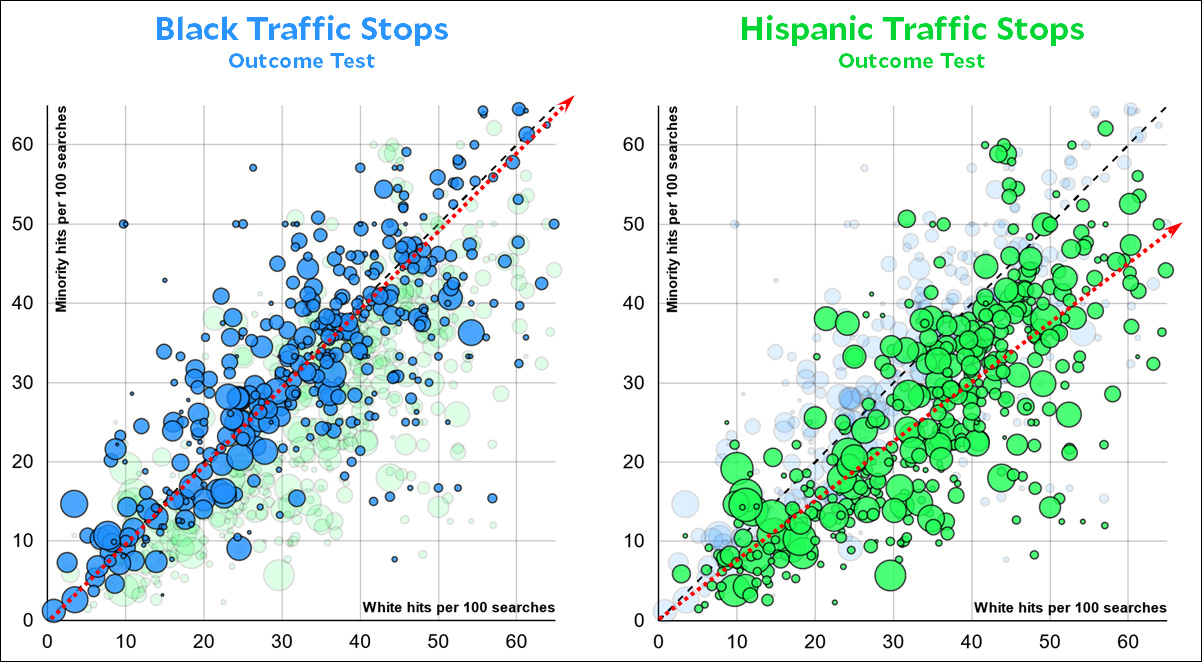The Stanford Policing Project is a massive effort to collect data on police stops nationwide. It’s basically an attempt to find out whether police unfairly stop and search blacks and Hispanics at greater rates than whites, and they’ve now released the data they have so far.
What they find is that police stop Hispanics at about the same rate as whites, but stop blacks at a somewhat higher rate. Once stopped, both groups are ticketed, searched, and arrested at significantly higher rates than whites. But is this because of racial discrimination? The Stanford researchers used two different tests to find out.
First up is what’s called an “outcome test.” If, say, police search blacks at twice the rate of whites, but also find contraband at twice the rate, it suggests there’s no bias in who they choose to search. They’re using a roughly equal standard of suspicion for both. Here are the results of that test. Note that the dashed black line represents white searches, while the dashed red line is my eyeball guess at the difference for blacks and Hispanics:

Although police search blacks more often than they search whites, they find contraband at about the same rate. They appear to be using similar criteria for both. However, they find contraband at a lower rate in searches of Hispanic drivers. This suggests they’re using a tougher standard of suspicion against Hispanics.
But that’s not all. There’s also something called a “threshold test.” This is a more direct measure of the standard police use to search drivers they stop. Here are the results:

When this more sensitive test of outcomes is applied, it shows that the threshold for a search is lower for both blacks and Hispanics. Very roughly speaking, it appears that police need about a third less suspicion to search black and Hispanic drivers compared to white drivers.
I’m not sure how this compares to previous studies. My initial sense is that it’s less than I would have guessed. Overall, police do stop and search black and Hispanic drivers at unfairly high rates, but not at enormously higher rates—although it’s obvious that in certain communities the stop rate of minority drivers is far, far higher and the standard of suspicion is far, far lower than it is for white drivers:

We’ll certainly find out more about this in the future, since the Stanford researchers have placed their massive database online and made it available to anyone who wants to dive more deeply into the data. They also continue to collect information from police departments around the country.














